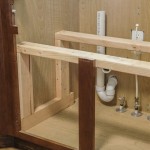How to Start a Profitable Worm Farm
Embark on a lucrative venture by establishing your own worm farm. With careful planning and execution, you can transform organic waste into valuable vermicompost and reap significant profits. Here's a comprehensive guide to help you get started.
Site and Setup
Choose a sheltered location with access to ample moisture and drainage. Consider using an outdoor enclosure or a dedicated indoor space. Prepare the bins or beds with a mixture of shredded paper, cardboard, and a starter batch of red wiggler worms.
Feeding the Worms
Provide your worms with a steady diet of organic materials such as kitchen scraps, garden waste, and animal manure. Avoid citrus peels and fatty or oily food. Maintain a balance of green (nitrogen-rich) and brown (carbon-rich) materials to ensure proper decomposition.
Moisture and Aeration
Worms thrive in moist environments. Regularly check the moisture levels of the bedding and adjust with water as needed. Ensure adequate aeration by turning the bedding periodically or using ventilation systems. Properly aerated bedding facilitates oxygen exchange and prevents anaerobic conditions.
Harvesting and Processing
After several months, your worms will have transformed the organic waste into nutrient-rich vermicompost. Harvest the castings by separating the worms from the compost using screening or flotation methods. Process the castings by drying and sieving to produce a fine, marketable product.
Marketing and Sales
Market your vermicompost through online marketplaces, nurseries, and local farmers' markets. Emphasize the benefits of using vermicompost, such as soil improvement, plant growth enhancement, and waste reduction. Offer various packaging options to meet customer demands.
Continuous Improvement
Monitor the health and productivity of your worm farm regularly. Adjust feeding schedules, bedding composition, and moisture levels as needed. By continuously improving your practices, you can optimize worm performance and maximize profits.
Financial Considerations
Starting a worm farm requires some upfront investment in bins, bedding, and worms. However, ongoing costs are relatively low. Revenue is generated through the sale of vermicompost. With proper management, a worm farm can be a profitable enterprise, especially in regions with high demand for organic fertilizers.
By following these essential aspects, you can establish a successful worm farm that generates sustainable income and contributes to waste reduction. Embrace the transformative power of worms and unlock the profitability of this eco-friendly venture.

How To Start A Worm Farm For Profit 7 Steps With Pictures

How To Start A Worm Farm For Profit 7 Steps With Pictures

How To Start A Worm Farm For Profit 7 Steps With Pictures

How To Start A Worm Farm For Profit 7 Steps With Pictures

How To Start A Worm Farm For Profit 7 Steps With Pictures

How To Build A Worm Farm At Home And Monetize It For Profit

How To Start A Worm Farm For Profit 7 Steps With Pictures

How To Start A Worm Farm For Profit 7 Steps With Pictures

How To Start A Worm Farm Business Up Jungle

How To Start A Worm Farm For Profit At Home Farming Beginners








